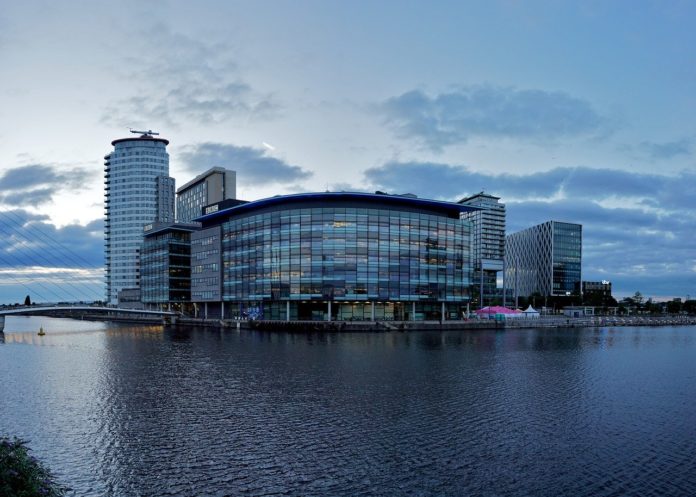With no less than 4,190 start-ups in 2015 alone, Manchester has become one of the most sought-after destinations for entrepreneurs in the UK. If you plan to embark on a new business venture, the city indeed has a lot to offer:
- the third largest airport in the country
- a 200-acre MediaCity UK mixed-use development for film, television, and other creative sectors
- modern and comfortable co-working spaces to expand your social network
- affordable venues in Manchester Business Park, Carrington Business Park, and Atlas Business Park.
Local enterprises can furthermore benefit from numerous investment and loan funds. For instance, the £155m North West Fund has recently been acknowledged as the most prolific VC investor of the nation, providing support for businesses worth £50,000 and more. Alternatively, Business Finance Solutions (BFS) may help you to obtain funds from £500 to £25,000, as well as equity finance up to £4m and export finance up to £500,000.
3 tips for long-term success in Manchester
Even though Manchester offers plenty of opportunities, young business owners should be equally aware of the risks involved. Between 2010 and 2015, less than 40 % of start-ups have actually managed to survive. For those who want to actually make it in the long run, here is what you should consider when starting a business:
Make yourself visible
No matter what business you are in – without the right marketing strategy, you will soon disappear from the scene! Apart from an appealing website and a considerable social-media presence, you will also have to work on off-line print media such as flyers, posters, and similar products. Nowadays, you can easily design your own office supplies using a digital print service. By handing out merchandise complete with your company’s unique logo, you will make sure that especially local customers and business partners will remember your brand far beyond a few clicks or swipes.
Think and plan ahead
Even the most innovative idea will eventually fail if you do not have your finances in order. Hence, you should always take the time to formulate a detailed business plan. This document not only helps you to stay on top of your expenditure, but also serves as a key tool for winning investors. To that end, your business plan must contain the following aspects:
- Executive Summary
- introduction of the company’s (co-) founders
- explanation of the product or service at hand
- market survey and selected target groups
- marketing strategy
- organizational aspects (legal status, location, staff)
- three-year budged plan
- SWOT analysis (strengths, weaknesses, opportunities, threats)
Start small, grow big
In order to generate maximum profits based on a minimum budget, successful entrepreneurs have been using a method known as “lean start-up”. This method relies on a simplistic prototype, the so-called Minimum Viable Product (MVP), to gather direct feedback from customers in the preliminary stages of development. Aspiring companies can thus identify and eliminate potential shortcomings early on, while simultaneously keeping production costs as low as possible. If you start out with an MVP to test your idea at a local level, you will quickly figure out the specific needs and concerns of potential buyers within and around Manchester.







